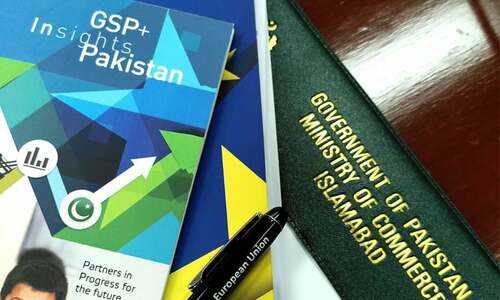ISLAMABAD: The European Union has observed that politics in Pakistan is highly partisan, with little cooperation and compromise solutions between the government and parliament despite three elections and two peaceful transitions between civilian governments since 2008.
The role of the military in politics and administration is seen as guarantee for stability, but also criticised for undermining civilian governance capacity, according to the ‘Multi-Annual Indicative Programme (MIP) for 2021-202, which was recently signed by Pakistan and the European Union.
The latest programming is guided by the country’s strategic development priorities and the overall geopolitical programme of the European Commission for promoting green and sustainable inclusive growth and jobs, advancing governance and human development, and fostering resilience, peace and security as well as digitalisation.
The duration of the new MIP is of seven years, for the period 2021 to 2027, and it will be implemented in two phases with a mid-term review of progress taking place in 2024. This review will provide an opportunity to possibly redefine and redirect EU priorities and actions in the light of evolving economic, social and political developments as well as lessons learnt.
Says security situation and access to justice are matters of concern
For this reason, EU has earmarked an initial grant of 265 million euros. The multi-annual indicative programme (MIP) and the ‘Vision 2025’ are expected to be revised, following the 2023 general elections. This will allow realigning the second half of the MIP with a new government strategy as it may emerge, EU document says.
The third elections since the end of the military regime in 2008 and, therefore, the second successive peaceful transfer of power between civilian governments took place in 2018 in relative calm. However, the security situation and access to justice in the country remains challenging.
The efficiency of law enforcement and judiciary institutions is impacted by outdated regulatory frameworks. There is thus the need for capacity strengthening, and for improved coordination and cooperation between the stakeholders. This situation affects both internal security and citizens’ trust in the institutions, as well as the investment climate.
A slow recovery from the Covid-19 crisis and its related socioeconomic impact could further delay needed economic and structural reforms. These will be mitigated through increased coordination and dialogue with other development partners, regular policy and political dialogue, provision of dedicated capacity building activities, including in the area of public financial management, mainly through technical assistance, and whenever possible exchange of expertise from EU member states.
The MIP will also aim at enhancing cooperation in the areas of the Strategic Engagement Plan such as economic, social, and environmental sustainability, energy, the rule of law, good governance and human rights. This MIP also fully takes into account the situation in Afghanistan further to the Taliban takeover, covering in a mainstreamed approach the refugees and their hosting communities, and complements the specific programmes financed at the regional level.
The MIP will address capacity issues and integrate disaster risk management in future programmes in order to increase resilience of economic activities, building upon actions supported by the EU’s humanitarian assistance.
While the MIP covers all the country, it is proposed to concentrate most of the support in the provinces and fragile territories adjacent to the western border with Afghanistan, Balochistan and Khyber Pakhtunkhwa, and the territory of Gilgit-Baltistan. This support will be complemented by federal level interventions and whenever justified interventions in the other provinces and territories. The proposed geographical targeting should trigger increased focus and impact and a more transformational effect.
Agriculture is the main economic sector in Pakistan and water availability is under increasing stress. Skewed land distribution and precarious tenure rights impact negatively agricultural competitiveness and livelihood opportunities and keep small farmers and landless families trapped in poverty.
A critical factor to ensure that agriculture production can meet the growing food demand is access to energy.
Published in Dawn, August 9th, 2022












































